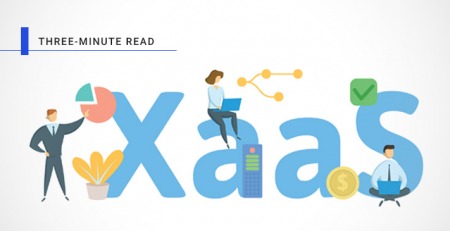Which AI Tools Drive Meaningful Business Growth and Change?
AI is everywhere. One Harvard Business Review survey of 250 executives who are familiar with their companies’ use of cognitive technology revealed, “three-quarters of them believe that AI will substantially transform their companies within three years.”
That timeframe is important. Because change is a disruptive force, it’s best implemented incrementally. An immediate overhaul of an organization’s systems and processes could grind things to a halt.
Considering joining the ranks of leaders who are leaning into AI to drive growth and change? See which of these AI use cases you might benefit from most and where you can start making small, meaningful changes.
What Exactly is AI?
“‘Artificial intelligence’ is a broad term that refers to any type of computer software that engages in humanlike activities – including learning, planning, and problem-solving,” explains Business News Daily.
AI technologies share commonalities with the human mind, mirroring and surpassing some of our most innate qualities. Take data processing for instance. Though the human mind can manage diverse data points, we’re limited in the amount we can organize and analyze. AI isn’t. These softwares thrive off troves of data inputs, synthesizing them into useful potential outcomes humans can use to influence their own decision making.
These softwares thrive off troves of data inputs, synthesizing them into useful potential outcomes humans can use to influence their own decision making.
Used in the right applications, AI can help us infer potential consequences of certain scenarios, so we take more informed action that aligns with our goals.
Where to Start
AI has come a long way in a short amount of time. From the pages of sci-fi novels to real-world applications, AI developments are becoming more essential in our life and work.
Here are three instances HBR recommends for businesses who are interested in AI adoption but want to ease in:
- Process automation. Many of these are back-end, administrative tasks that produce data or utilize it. An example would include keeping your customer or client profiles updated with their most recent contact information.
- Data insight and analysis. Pattern recognition is a hugely helpful skill, one AI does so well. Whether you’re trying to identify where a process is stalling out or see which stage of the buying journey a customer is at, cognitive insight tools can be immensely helpful.
- Stakeholder engagement. Chatbots are one of the most common, widely used types of AI communication tools. They make it possible to respond to customers any time of day or night. Have you ever forgotten your password? You probably interacted with AI to help retrieve it. That’s the degree of ease and accessibility you may want to consider when thinking of using AI in your customer and employee-facing interactions.
Other Useful AI Business Applications
Artificial Intelligence tools have become so seamless and commonplace that many of us forget how integrated they already are, even as we rely on tools like voice-assisted technologies without thinking.
These five AI applications offer businesses a way to level up while offloading some of the work.
1. Machine learning
These algorithms help you contextualize large amounts of data so decision makers can take action with more confidence they’ll meet the intended outcome.
2. Cybersecurity
AI’s always-on, pattern recognition functions can alert IT teams to abnormal behaviors before they become costly breaches.
3. Customer relationships
These tools invite customers to interact with your business in more meaningful ways, by making certain product offers or recommending resources tailored to their specific situations.
4. Audience targeting
Data can help you shape your offerings and marketing collateral so that you’re more precisely targeting your audiences and meeting their needs more exactly.
5. Digital personal assistants
Two heads (or in this case, double the cognitive function) are better than one. Even if all your new AI tool did was help manage your email inbox, wouldn’t that be enough?
At its most fundamental level, AI is nothing more than programming. But the magic is in how it gets applied. Whether you want to catch a criminal in the act or streamline your workday so you can have the bandwidth to make higher-level decisions that advance your mission, these tools are a smart addition.
Content created and provided by ONEAFFINITI.












